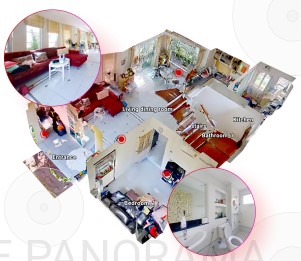[Global Series: Marriage and Assets] Taiwan: Preparing for Marriage
- Release date: Oct 03, 2022
- Update date: Oct 14, 2025
- 7083 Views

According to IMF projections, Taiwan's per capita GDP is expected to reach $36,000 (approximately ¥4.7 million) in 2022, surpassing South Korea. Despite persistent talk of a prolonged economic downturn, its economic development over the past decade has been dizzying. Rapid advances in IT technology and shifting values appear to be altering young people's attitudes toward marriage. Similar to Japan, an increasing number of young people are choosing not to include marriage or having children as life options. Furthermore, the culture surrounding weddings and gift-giving is gradually becoming more simplified.
The State of Marriage in Taiwan as Late Marriage Becomes More Prevalent
According to the Executive Yuan, which corresponds to Japan's Cabinet and ministries, the average age at first marriage in 2021 was 32.3 years for men and 30.4 years for women. There are two patterns regarding the timing of marriage: those who marry after graduating from university if they find a suitable partner, and those who marry several years after entering the workforce. By their 30s, more people around them begin marrying, and particularly for women, the childbearing years also factor in, leading many to decide to marry. However, attention must also be paid to Taiwan's divorce rate. Statistics from the Ministry of the Interior, equivalent to Japan's Ministry of Internal Affairs and Communications, show that in 2021, 114,606 couples married, while 47,887 couples divorced. Furthermore, statistics from the end of 2020 indicate that 43.2% of Taiwanese aged 25 to 44 were unmarried, the highest rate on record. Economic anxieties and unstable social conditions are contributing to a growing number of young people choosing not to marry each year.
Regarding the “dowry” required for marriage
Like in Japan, for Taiwanese people, marriage is not just a union between individuals, but rather a connection between “families.” For Taiwanese, who value family and kinship ties even more than the Japanese, it is no exaggeration to say it is a bond between “clans.” A custom exists where the groom's family sends money called “pinjin” (聘金) to the bride's family upon marriage. This pinjin is considered one of the most important aspects of the wedding. It is divided into two parts: the ‘dapin’ (大聘), given to ensure the bride has sufficient means for food, clothing, and shelter after moving to her husband's home, and the “xiaopin” (小聘), given as a token of gratitude to the bride's parents for raising their daughter to be a wife. The general standard is for the Da Ping to be at least 360,000 yuan (approximately ¥1.6 million) and the Xiao Ping at least 100,000 yuan (approximately ¥450,000). Both amounts are prepared as auspicious even numbers, and the specific sums are negotiated and agreed upon by both families (disagreement here can sometimes lead to the marriage being called off). The Da Pin is mostly used to purchase the bride's trousseau, known as “Jia Zhuang.” This includes furniture, bedding, and in modern times, appliances and vehicles. Jewelry like gold rings and necklaces is also purchased (traditionally, gold bracelets adorned with dragons and phoenixes were bought). Other items include bath tubs, sewing boxes, shelves, two sets of chopsticks, and 72 sets of clothing—a truly diverse range. While items for good luck were once prepared, the practice has become significantly simplified. Many people now accept the “small betrothal gift” and return the “large betrothal gift” after the ceremony. Furthermore, this tradition is changing; some people refuse to accept the money itself, saying it “feels like selling their daughter for cash.”
The Changing Conditions of Marriage
In Taiwan, men who owned a car and a home, or had sufficient savings to purchase them, were once considered ideal marriage partners. Rising living costs and fluctuating real estate prices now make this increasingly difficult. According to Julius Baer Bank's “Global Wealth and Lifestyle Report 2022,” Taipei ranked third in price levels among 24 global cities surveyed for luxury goods commonly purchased by high-net-worth individuals, trailing only Shanghai and the UK. This finding indicates that Taipei's soaring prices are remarkably pronounced, not limited to the wealthy. From 2011 to 2021, the overall price increase was 8.93%. Real estate prices, however, surged by a staggering 52% (driven by a real estate investment boom since 2000 that sent housing prices skyrocketing). While the average annual income has significantly increased to NT$776,000 (approximately ¥3.53 million) compared to a decade ago, most young people find housing prices so high they are out of reach. It is said that many young people who purchased homes before or upon marriage relied on parental assistance to do so. Furthermore, the high cost of living in Taipei and Hsinchu has become increasingly noticeable in recent years. Newlywed couples are now more commonly seen establishing homes in suburban areas like New Taipei or Taoyuan and commuting to Taipei for work. While purchasing a new home after marriage was once common, the soaring housing prices have made this trend less feasible. Some choose to rent, while others reportedly make the choice to “buy a home instead of having children.”
Young People’s Car Purchasing Behavior and Wedding Rings
Young people under 30 today tend not to need cars. Twenty years ago, cars could be purchased for under ¥500,000 (about ¥2.27 million), but rising prices and declining starting salaries make it difficult to secure loans. More young people find they cannot buy a car without parental assistance, yet many parents also lack financial leeway, making the situation even harder. Moreover, today's youth have diversified interests beyond cars, including computers, travel, gourmet dining, and gaming, leading them to spend money on these things instead of buying a car. Modern newlyweds seem less likely to pursue both a car and a home as couples did in the past. Instead, many are faced with the choice: “Should we buy a car or a home?”
Regarding rings, assuming an average monthly income of ¥30,000 (approx. ¥136,000), it is introduced that “one month's income can buy a simple ring, two months' income can buy a ring with a small diamond, and three months' income expands options to include brands.” The typical price range for an engagement ring is around ¥30,000 to ¥50,000 (approx. ¥136,000 to ¥227,000), while wedding bands (pairs) typically cost around ¥80,000 (approx. ¥364,000). Marriage, a major life event, once required preparing numerous items and assets under tradition and custom. However, this culture has changed with the times and is steadily becoming simpler. For newlyweds starting a new life together, there seems to be a growing movement to discern what is truly necessary.
What is Consumer Life Panorama?
This is a website-type database that has accumulated visual data on more than 1,000 sei-katsu-sha from 18 countries around the world. The database includes many 3D models of living environments and 2D data of items owned by each sei-katsu-sha, and is useful for understanding overseas sei-katsu-sha, which is difficult to grasp using only letters and numbers.
Using visual data such as those cited in this column,
Compare the differences in the attributes of overseas consumers
To get a realistic understanding of the actual usage of each category
To understand the overall lifestyle of target consumers
etc., can be utilized as a “no-go” home visit survey.

-

Author profile
TNC Lifestyle Researcher
Lifestyle Researchers, a network of 600 Japanese women living across 100 regions in 70 countries worldwide, operated by TNC Inc., uncovers trends invisible in statistics and captures authentic voices from consumers. Based on this raw data, we provide solutions to corporate challenges and develop product concepts. https://www.tenace.co.jp/ Profile of the person in charge: Residing in Taiwan for approximately 20 years. Taiwan, home to a large pro-Japan community, continues its rapid development in IT and eco-friendly fields. Furthermore, the food and marketing concepts brimming with uniquely Taiwanese ideas are highly intriguing and offer many valuable insights.
-

Editor profile
Chew Fong-Tat
I am a Malaysian researcher. I came to Japan 15 years ago and am still based in Tokyo, sharing insights about Southeast Asia and other overseas markets.
 Global Market Surfer
Global Market Surfer CLP
CLP


